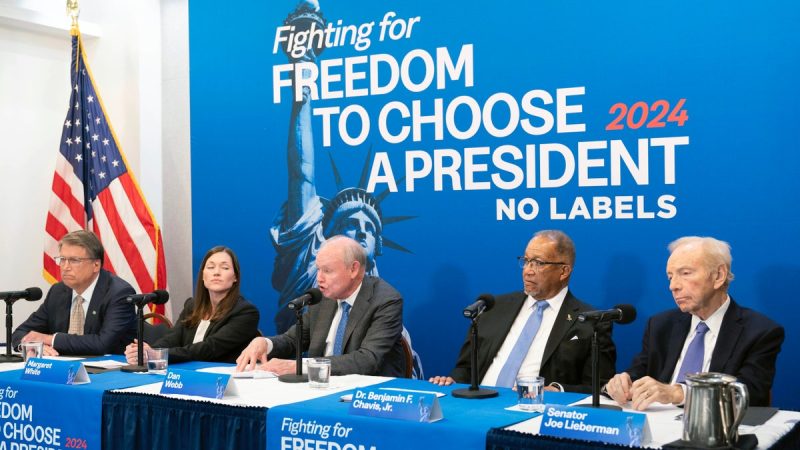With the White House Race Likely Headed for a Biden-Trump Rematch, No Labels Prepares for Potential 3rd-Party Ticket
As the 2024 U.S. presidential election looms closer, political strategists and pundits alike are observing the potential rematch between President Joe Biden and former President Donald Trump. With the two dominant parties once again taking center stage, there is little room for alternative viewpoints and fresh perspectives in the mainstream political discourse. However, a potential game-changer may be on the horizon, as a nonpartisan political organization, No Labels, prepares for the possibility of a third-party ticket.
No Labels, founded in 2010, aims to bridge the partisan divide that has plagued American politics for decades. They advocate for pragmatism, compromise, and problem-solving by collaborating across party lines. Their approach centers around their Problem Solver Caucus, a group of legislators committed to finding bipartisan solutions on key issues.
In the 2024 election, No Labels recognizes the opportunity to disrupt the traditional two-party system. The potential for a Biden-Trump rematch prompts the organization to explore the possibilities of fielding a third-party candidate that aligns with their principles of bipartisan cooperation. By doing so, they hope to offer voters an alternative choice that breaks away from the polarizing rhetoric often associated with partisan politics.
The concept of a viable third-party candidate is not entirely unheard of in recent U.S. politics. In the 1992 presidential election, businessman Ross Perot ran as an independent candidate, garnering a significant portion of the popular vote. His campaign tapped into a wellspring of frustration with the two-party system, resonating with voters seeking an alternative to what they perceived as political stagnation.
No Labels aims to build upon the Perot phenomenon by presenting a candidate who embodies the values of collaboration, problem-solving, and pragmatism. While the chances of a third-party candidate winning the presidency outright may seem slim, the potential impact of such a candidate cannot be underestimated. A strong showing in the election could force the major parties to reevaluate their strategies and priorities, pushing them to embrace more bipartisan approaches in the future.
To maximize their chances of success, No Labels acknowledges the need for a candidate with broad appeal. Their potential nominee should possess the ability to attract voters from across the political spectrum, including independents, moderate Democrats, and Republicans dissatisfied with their party’s direction. By mobilizing a broad base of support, their candidate could disrupt the electoral calculus and bring fresh perspectives into the national conversation.
Of course, mounting a third-party campaign will not be without its challenges. The American electoral system is designed to favor the two major parties, making it difficult for third-party candidates to gain traction. Additionally, campaign funding and media attention tend to gravitate towards the established political powerhouses. However, No Labels is undeterred by these obstacles and remains committed to their mission of promoting bipartisan problem-solving.
Ultimately, the success or failure of a potential third-party ticket in the 2024 election will depend on numerous factors, including the political climate, candidate selection, and grassroots support. No Labels recognizes that achieving their goals will require a long-term commitment to cultivating a bipartisan movement that extends beyond any single election cycle.
While the possibility of a third-party ticket seems uncertain, it serves as a reminder that fresh ideas and alternative viewpoints are essential in a healthy democracy. No Labels’ endeavors to disrupt the entrenched two-party system exemplify the importance of promoting collaboration and bridging divides. Regardless of the outcome in 2024, their efforts remind us that fostering a politics of cooperation and pragmatism is crucial if we are to address the pressing challenges facing our nation.

